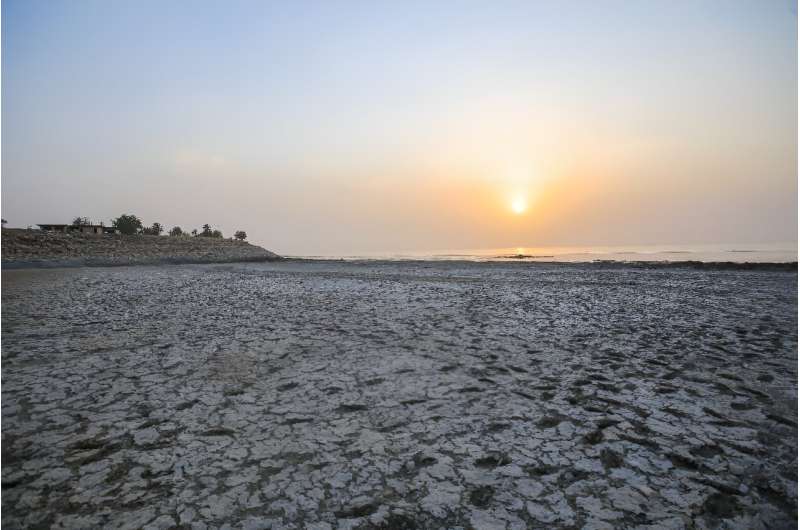
Iraqi merchant Mohamed has never seen such a grim tourist season: years of drought have shrunken the majestic Lake Habbaniyah, keeping away the holidaymakers who once flocked there during summer.
“This year, it’s dry, dry!” Mohamed told AFP, his shirt soaked in sweat in the inhospitable heat of nearly 50 degrees Celsius (120 Fahrenheit).
Shorelines at Habbaniyah, about 70 kilometers (45 miles) west of the capital Baghdad, have receded by several dozen meters after four consecutive years of drought ravaged parts of the country.
The United Nations ranks water-stressed Iraq as one of five countries most impacted by some effects of climate change.
The resort was created around the artificial lake in 1979, becoming a popular destination for tourists from across the Middle East in the following years.
Declining rainfall over the past four years and rising temperatures have hit Habbaniyah—alongside much of the rest of the country—hard.
Baghdad blames upstream dam construction by Turkey on a staggering low water level in the Euphrates river, which feeds the lake and also runs through Syria.
“The strategic water reserves in Iraq are at their lowest point” in nearly a century, Khaled Shamal, spokesman for the water resources ministry, has warned.
Last week during a visit to Baghdad, United Nations human rights chief Volker Turk warned that “rising temperatures plus the drought, and the fact that the loss of diversity is a reality, is a wake-up call for Iraq and for the world”.